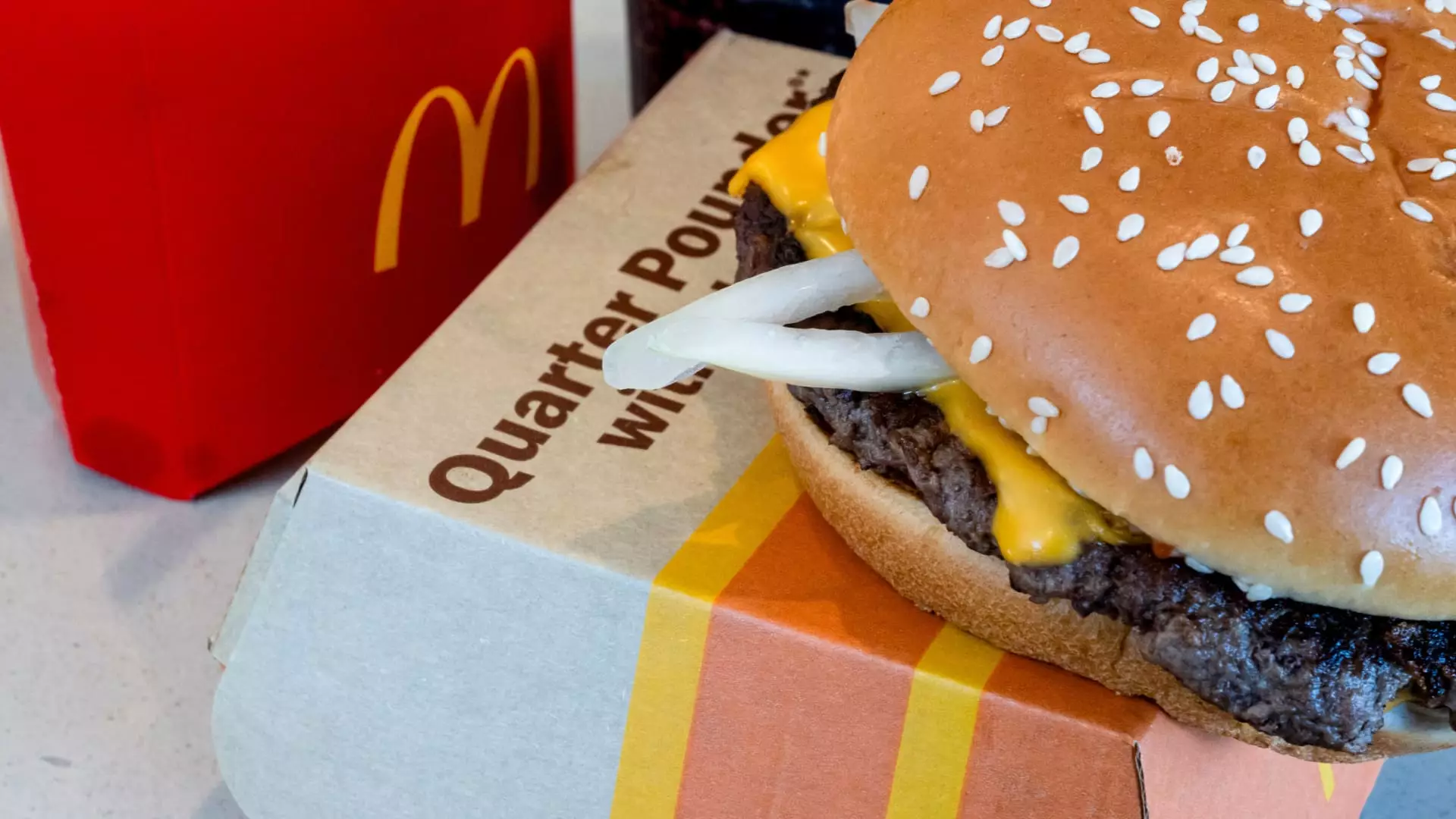A recent E. coli outbreak associated with McDonald’s Quarter Pounder hamburgers has raised significant public health concerns in the United States. Announced by the Centers for Disease Control and Prevention (CDC), this outbreak has resulted in 75 confirmed cases across 13 different states. This situation not only represents a public health crisis but also poses substantial risks to McDonald’s reputation and operational stability. The CDC has identified that this outbreak led to 22 hospitalizations and one confirmed death of an elderly individual in Colorado, highlighting the severity of the situation.
The breadth of the outbreak is alarming. Among the 61 patients from whom information has been collected, over one-third required hospitalization. Of those, two individuals have developed hemolytic uremic syndrome (HUS), a serious condition that can lead to kidney failure. The demographic diversity of the affected group, ranging in age from 13 to 88, indicates that the E. coli strain responsible does not discriminate, affecting both young and elderly individuals alike.
As investigations unfold, the CDC has suggested that the true number of cases could be significantly higher than reported. Notably, many individuals infected with E. coli do not seek medical attention, often recovering without a formal diagnosis. This lack of comprehensive testing and diagnosis complicates the agency‘s efforts to fully grasp the scale of the outbreak. Compounding this issue, it typically takes several weeks to confirm whether someone is part of an E. coli outbreak, which suggests that more cases may yet emerge.
The spread of the outbreak has also had immediate repercussions for McDonald’s stock value, which has seen a decline since the initial announcement of the outbreak. The restaurant chain’s stocks dropped by 2% on the latest news, and are reported to be down by approximately 6% since the CDC first noted the outbreak. Given the Quarter Pounder’s status as a cornerstone menu item, such a downgrade in share value signals investor concerns over the company’s future performance amid this crisis.
Health officials are closely investigating various components associated with the Quarter Pounder. Initial focus has been placed on slivered onions, which are suspected as the likely source of E. coli contamination. In response, McDonald’s has taken precautionary actions by instructing restaurant locations in affected states—including Colorado, Kansas, and others—to remove slivered onions from their inventory and halt distribution of the contaminated ingredient. Concurrently, they have ceased selling Quarter Pounders in the impacted areas as a safeguard against further spread of the pathogen.
The identification of Taylor Farms, a California-based produce supplier, as the source of the sliced onions suggests a broader agricultural concern. Notably, Taylor Farms has initiated a recall of four onion products due to potential contamination with E. coli. The ripple effect of this outbreak is significant, with several other fast-food chains such as Burger King, KFC, and Taco Bell also removing onions from their menus in response.
Federal agencies are not only investigating the onions but are also scrutinizing the beef patties used in the Quarter Pounders as a potential contributor to the outbreak. As thorough investigations commence, McDonald’s remains vigilant and has publicly committed to protecting its customers’ health and safety.
While immediate health concerns are paramount, the longer-term implications for McDonald’s could also become significant. Approximately 20% of McDonald’s U.S. restaurants are currently unable to sell Quarter Pounders, which undoubtedly affects their revenue stream. Additionally, prior to this crisis, McDonald’s had already been grappling with declining sales in the American market as consumers shifted towards more cost-effective meal options. Price sensitivity among customers has posed challenges for McDonald’s, leading to the introduction of value meals to attract diners.
Despite the potential for reputational damage, experts maintain that the long-term effects on McDonald’s brand may be mitigated if the situation is contained. Drawing on previous incidents—like the E. coli outbreak associated with Wendy’s—research suggests that although such situations can initially damage a brand, recovery is plausible if managed effectively. The coming earnings report will likely serve as an important gauge for evaluating the impact of this incident on consumer behavior and overall sales, especially as McDonald’s navigates through this crisis.
The ongoing E. coli outbreak presents a multifaceted challenge for McDonald’s, merging immediate health risks with long-term business implications. However, with proactive measures in place and thorough investigations underway, both the company and health officials are striving to ensure public safety and restore consumer confidence.

